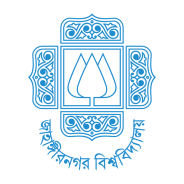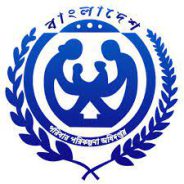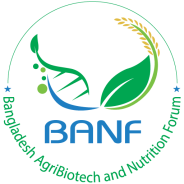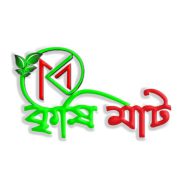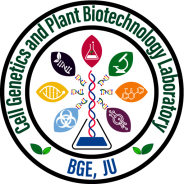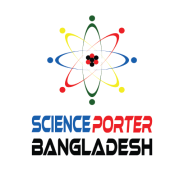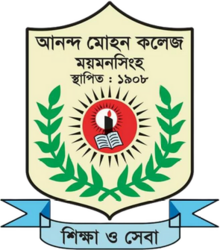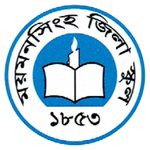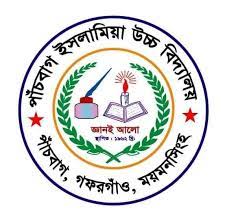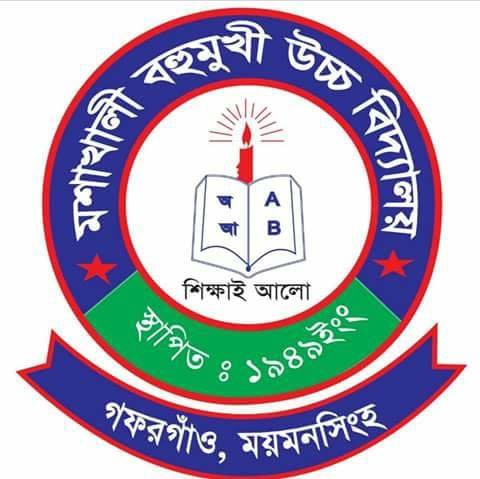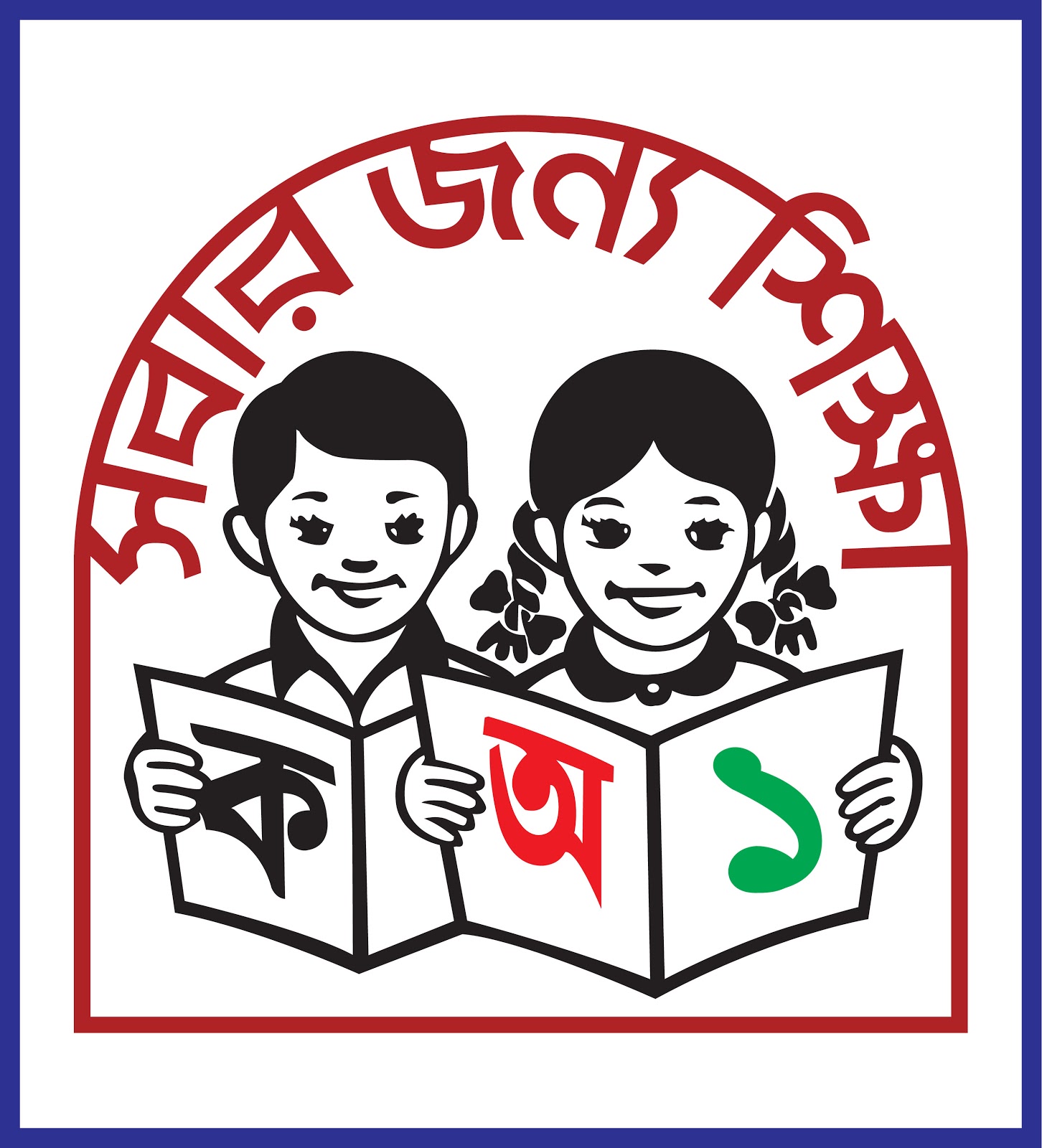AIEDGE is a tech conglomerate that offers a range of cutting-edge services to make life easier for everyone. AIEDGE stands as a pioneer in AI edge computing and is currently engaged in the active exploration of quantum artificial intelligence. We use AI to build smart systems that you always wish existed.
CEO at AIEDGE
Researcher
Entrepreneur
Writer
Science Communicator
Web Developer
Domain Investor
Cybersecurity Consultant
Voice Artist
CEO at AIEDGE
Researcher
Entrepreneur
Writer
Science Communicator
Web Developer
Domain Investor
Cybersecurity Consultant
Voice Artist
Hey, there 
I'm Sayem Sarkar, CEO at AIEDGE, blending roles as a researcher, entrepreneur, writer, and science communicator. With a knack for web development, domain investing, and cybersecurity consulting, I'm also a voice artist. My diverse skill set converges to shape the future through innovation and technology.
- Age: 26
- Residence: Bangladesh
- Consultancy: Available
- Address: Jahangirnagar University
Background:
My journey into liver cirrhosis research was profoundly influenced by witnessing my father's courageous battle with this debilitating condition over the past five years. Witnessing his rapid decline from perfect health to experiencing severe complications such as portal hypertension, variceal bleeding, ascites, hepatic encephalopathy, and the rare GAVE complication has deeply impacted my perspective on life and priorities. The helplessness I feel in the face of his suffering fuels my determination to make a difference in cirrhosis research, not only to save my father but also to bring hope and relief to countless others facing similar challenges.
Research Interests:
My research interests lie in pioneering novel approaches to combat liver cirrhosis, with a strong emphasis on precision medicine and targeted genetic interventions. I believe that unlocking the potential of specific gene expressions to reverse tissue scarring holds the key to developing effective treatments. Specifically, I am focused on targeting the negative regulators within the TGF-β1/Smad signaling pathway, which, when coupled with Mesenchymal Stem Cells (MSCs), has the potential to reverse fibrosis and significantly improve patient outcomes. Additionally, I am exploring the therapeutic potential of plant-based active chemicals in reversing fibrosis, aiming to identify promising candidates for further investigation. My central research question revolves around understanding how targeted genetic interventions and plant-based compounds can synergistically reverse fibrosis, ultimately paving the way for personalized treatments that transform cirrhosis management into a more hopeful and effective endeavor.
Relevant Experiences:
Building upon my undergraduate review study titled "Precision Medicine Approaches: Targeting Specific Gene Mutations in Liver Cirrhosis Therapy," I have delved deep into the existing literature to support the notion that precision medicine holds immense promise in cirrhosis research. My personal connection to the disease has driven me to continually explore and evaluate various plant-based compounds that may harbor active ingredients capable of reversing fibrosis. Through rigorous examination and experimentation, I have honed my skills in critically analyzing scientific evidence and identifying potential therapeutic targets. These experiences have equipped me with the necessary knowledge and expertise to pursue innovative research avenues aimed at transforming the landscape of cirrhosis treatment.
Background:
My passion for revolutionizing medical treatment using precision medicine stems from a fundamental belief in the uniqueness of each individual. Just as our physical characteristics vary, so do our molecular characteristics. Recognizing this diversity, I am driven to challenge the prevailing inefficiencies in disease treatment. I am deeply committed to reshaping the medical landscape by harnessing the power of personalized medicine.
Research Interests:
My research endeavors are focused on leveraging individuals' genetic sequences to optimize treatment outcomes. By embracing a multi-omics approach, I aim to unlock a treasure trove of insights into tailored patient care. I am intrigued by the prospect of developing an automated system capable of discerning and integrating individuals' genetic nuances to tailor treatment recommendations. This pursuit extends across diverse disease domains, including the intricate realm of cirrhosis. I am particularly intrigued by the role of specific SNPs in predisposing individuals to cirrhosis and the potential for tailored interventions to enhance therapeutic efficacy. To achieve these objectives, I am actively exploring the integration of machine learning techniques, recognizing that precision medicine hinges on the symbiotic relationship between AI and healthcare innovation.
Relevant Experiences:
Building upon my undergraduate review study on precision medicine in liver cirrhosis therapy, I bring over 5 years of hands-on experience in AI to the table. My prior work on similar projects underscores my proficiency in navigating the complex intersection of genetics, medicine, and artificial intelligence. These cumulative experiences uniquely position me to spearhead innovative precision medicine initiatives with a focus on individualized patient care.
Background:
My fascination with personalized medicine stems from a desire to transform healthcare by moving away from traditional one-size-fits-all approaches towards tailored treatments that account for individual variations in genetics, lifestyle, and environment. Witnessing the potential of personalized medicine to improve patient outcomes, reduce adverse effects, and optimize healthcare resource utilization, I became deeply passionate about exploring this innovative approach to healthcare.
Research Interests:
In personalized medicine, I am driven to uncover how individual genetic, molecular, and clinical characteristics influence disease susceptibility, progression, and response to treatment. I aim to develop predictive models that leverage multi-omics data, including genomics, transcriptomics, and proteomics, to identify biomarkers and therapeutic targets for personalized interventions. Additionally, I'm interested in exploring the integration of digital health technologies, such as wearable sensors and mobile health apps, to capture real-time patient data and inform personalized treatment decisions.
Relevant Experiences:
My academic background in biotechnology and genetic engineering, coupled with research experience in analyzing large-scale omics data and developing computational models for predicting disease risk and treatment response, positions me well to contribute to personalized medicine research. Additionally, my involvement in collaborative research projects and clinical trials has provided me with practical insights into the challenges and opportunities of implementing personalized medicine approaches in clinical practice.
Background:
My interest in genetic engineering was sparked by a fascination with the potential to manipulate and modify genetic material to address pressing medical and environmental challenges. Witnessing the transformative impact of genetic engineering in fields such as agriculture, medicine, and biotechnology, I became deeply intrigued by its ability to impact life around us and to develop innovative solutions to complex problems.
Research Interests:
In genetic engineering, I aim to explore novel techniques for precision genome editing and synthetic biology to engineer organisms with enhanced traits and functionalities. Specifically, I am interested in investigating the molecular mechanisms underlying genome editing technologies such as CRISPR-Cas9 and developing strategies to improve their efficiency, specificity, and safety. Additionally, I'm intrigued by the potential of synthetic biology approaches to design and construct artificial genetic circuits and metabolic pathways for applications in biomanufacturing, bioenergy production, and environmental remediation.
Relevant Experiences:
My academic background in biotechnology and genetic engineering, coupled with research experience in genome editing and synthetic biology, positions me well to contribute to genetic engineering research. Through hands-on laboratory work and collaborative research projects, I have gained practical skills in molecular cloning, genetic manipulation, and functional genomics. Additionally, my involvement in interdisciplinary collaborations and industry partnerships has provided me with valuable insights into the practical applications and ethical considerations of genetic engineering technologies.
Background:
My fascination with immunology originates from a deep intrigue in the intricate operations of the human immune system and its fundamental significance in both maintaining health and combating diseases. Observing the complexity of immune responses and their profound influence on diverse physiological functions, I have been enthralled by the prospect of uncovering novel understandings of immune regulation. Furthermore, I am driven by the potential to pioneer innovative therapeutic approaches aimed at addressing incurable ailments such as cirrhosis, cancer, infectious diseases, and autoimmune disorders.
Research Interests:
In immunology, I am driven to explore the mechanisms underlying immune recognition, activation, and regulation, with a focus on understanding how dysregulation of the immune system contributes to the pathogenesis of diseases. Specifically, I am interested in investigating the interplay between the innate and adaptive immune responses, as well as the role of immune checkpoints and regulatory pathways in maintaining immune homeostasis. Additionally, I aim to explore the development of immunotherapeutic approaches, including immune checkpoint inhibitors, adoptive cell therapies, and therapeutic vaccines, to harness the power of the immune system for targeted treatment of diseases.
Relevant Experiences:
My academic background in biotechnology and genetic engineering, coupled with research experience in immunology and molecular biology, positions me well to contribute to immunology research. Through laboratory work and research projects, I have gained practical skills in cellular and molecular techniques, including cell culture, flow cytometry, and immunohistochemistry. Additionally, my involvement in collaborative research endeavors has provided me with valuable insights into the complexities of immune system function and the translation of basic research findings into clinical applications.
Background:
From a young age, I developed a profound passion for physics, computer science, and problem-solving. However, alongside this fascination, I harbored a strong desire to make meaningful contributions towards finding cures for seemingly incurable diseases. This drive led me to pursue studies in biotechnology and genetic engineering. Among the various subfields within these disciplines, computational biology emerged as the nexus that could integrate my diverse interests and aspirations. It was a natural choice for me to focus on computational biology as my primary area of expertise, as it offered the means to unravel biological mysteries through computational methodologies. Witnessing the exponential growth of biological data and the escalating complexity of biological systems further fueled my enthusiasm. I became enthralled by the potential of computational tools and algorithms to analyze, interpret, and model biological phenomena. This interdisciplinary convergence perfectly aligns with my passion for tackling intricate problems at the interface of science and technology.
Research Interests:
In computational biology, I am focused on elucidating the molecular mechanisms underlying complex biological processes, with a particular emphasis on genomics, transcriptomics, and systems biology. I aim to develop computational models and algorithms to integrate multi-omics data and decipher the regulatory networks governing gene expression, cell signaling, and disease pathways. Additionally, I am interested in exploring the application of machine learning and artificial intelligence techniques to predict biological interactions, identify biomarkers for disease diagnosis and prognosis, and guide personalized treatment strategies.
Relevant Experiences:
My academic background in biotechnology and genetic engineering, alongside my professional expertise in computer science, positions me well to contribute effectively to this interdisciplinary field. I started learning programming before college, and my skills have continued to develop since then. Through research projects and coursework, I have enhanced my data analysis skills and become proficient in statistical analysis and bioinformatics tools. This allows me to analyze large biological datasets and extract valuable insights. Additionally, my involvement in collaborative research demonstrates my ability to conduct computational biology research and contribute to advancing our understanding of complex biological systems.
Background:
My journey into bioinformatics stemmed from a fervent passion for physics, computer science, and problem-solving, alongside a deep-seated drive to contribute to medical advancements. This led me to delve into biotechnology and genetic engineering, where I discovered the pivotal role of bioinformatics in integrating diverse disciplines. Witnessing the exponential growth of biological data and the escalating complexity of biological systems ignited my enthusiasm for utilizing computational tools and algorithms to decode biological phenomena. This interdisciplinary convergence naturally guided me toward more specialized domains to perfectly merge my computational skills with biological insights, offering a unique avenue to unravel genomic mysteries and drive transformative discoveries in healthcare.
Research Interests:
In bioinformatics, I am dedicated to understanding the structure, function, and evolution of biological molecules, with a focus on genomics, proteomics, and structural biology. My research endeavors encompass developing computational algorithms and tools to analyze genomic sequences, predict protein structures, and annotate biological pathways. Specifically, I am interested in exploring questions related to sequence alignment, protein folding, molecular dynamics, and network analysis, aiming to uncover novel insights into the molecular basis of diseases and identify potential therapeutic targets.
Relevant Experiences:
My academic background in biotechnology and genetic engineering, coupled with my professional expertise in computer science, positions me effectively to contribute to the interdisciplinary realm of bioinformatics. Having cultivated programming skills prior to college and continuously honing them since, I have developed proficiency in data analysis and statistical methods through coursework and research projects. This proficiency extends to utilizing bioinformatics tools for analyzing vast biological datasets and extracting meaningful insights. Moreover, my engagement in collaborative research endeavors underscores my capacity to conduct bioinformatics research and advance our comprehension of intricate biological systems.
Background:
From a young age, I was drawn to physics, computer science, and problem-solving, alongside a keen interest in combatting incurable diseases. This led me to study biotechnology and genetic engineering. Within these fields, systems biology emerged as the ideal intersection of my passions. Its computational approach to unraveling biological complexities resonated deeply with me. I became captivated by the potential of computational tools to analyze and model biological phenomena, aligning perfectly with my passion for tackling interdisciplinary challenges.
Research Interests:
In systems biology, I aim to unravel the dynamics and regulation of biological networks, with a focus on gene regulatory networks, signaling pathways, and metabolic networks. I am interested in developing mathematical models and computational algorithms to analyze high-throughput omics data and infer network structures, interactions, and dynamics. Specifically, I am intrigued by questions related to network inference, dynamical modeling, and network perturbation analysis, aiming to uncover key regulatory mechanisms underlying cellular processes and diseases.
Relevant Experiences:
My background in biotechnology and genetic engineering, coupled with my proficiency in computational modeling, data analysis, and bioinformatics, uniquely qualifies me for success in systems biology. Starting with a foundation in programming, I've developed skills in dynamic simulations, network analysis, and statistical methods, enabling in-depth exploration of biological systems. Using bioinformatics tools, I analyze genomic, transcriptomic, and proteomic data to derive meaningful insights. I integrate multi-omics data to gain comprehensive understandings of biological processes. My experience in experimental design ensures robust and reproducible results. Through collaborative research, I've honed my ability to lead investigations, contributing significantly to our understanding of complex biological phenomena.
Background:
My journey into the world of biotechnology and genetic engineering began in high school, where a discovery of small, movable lumps under my jaw sparked a fear of cancer. This personal health scare drove me to make a heartfelt pledge to find a cure, a commitment strengthened by my avid reading of biographies detailing the achievements of Nobel Prize laureates in physiology and medicine. This combination of personal experience and intellectual curiosity ignited a passion for disease therapeutics and led me to pursue a rigorous undergraduate education in biotechnology and genetic engineering. As I commence my master's studies in biotechnology, I remain captivated by its transformative potential to tackle urgent challenges in healthcare, agriculture, and environmental sustainability. Witnessing the innovative applications of biotechnology, from the development of novel therapeutics to the engineering of resilient crops, I became captivated by the interdisciplinary nature of the field and its ability to merge principles from biology, chemistry, and engineering to create impactful solutions. This interest not only aligns with my academic background but also resonates with my passion for leveraging science and technology to make meaningful contributions to society.
Research Interests:
In biotechnology, I am dedicated to exploring the intersection of molecular biology, bioengineering, synthetic biology, precision medicine, systems biology, and computational biology to develop innovative biotechnological solutions. Specifically, I am interested in investigating methods for genetic engineering and metabolic engineering to enhance the production of valuable compounds, such as pharmaceuticals, biofuels, and industrial chemicals. Additionally, I aim to explore the potential of gene editing technologies, such as CRISPR-Cas9, for precision genome editing and gene therapy applications. My research questions focus on optimizing bioprocesses, improving biocatalysts, and developing sustainable biomanufacturing strategies to address global challenges in healthcare, energy, and the environment.
Relevant Experiences:
My academic background in biotechnology and genetic engineering, complemented by research experiences spanning molecular biology, bioengineering, precision medicine, systems biology, and computational biology, provides me with a robust foundation to contribute meaningfully to this interdisciplinary field. Through coursework, routine lab work, research projects, and internships, I have honed practical skills in genetic manipulation, protein engineering, and bioprocess optimization, enabling me to address complex challenges in biotechnology effectively. Furthermore, my participation in collaborative research endeavors and industry partnerships highlights my ability to undertake biotechnological research and translate scientific discoveries into practical applications with real-world impact.
Background:
Growing up, I harbored a fervent aversion to rote memorization and any task devoid of extensive critical thinking, firmly believing that such endeavors were within the realm of capability for advanced machines yet to come. Little did I know about the burgeoning field of artificial intelligence (AI) at the time, but I held an unwavering conviction that as I matured, I could orchestrate machines to perform these cognitive feats. Imagine my astonishment when, within a mere seven years, the landscape of technological innovation had shifted dramatically, ushering in the era of sophisticated large language models that I had anticipated would not materialize until 2030 at the earliest. A pivotal moment in my journey occurred during a TED Talk, where a speaker asserted that AI represented humanity's ultimate innovation, beyond which all subsequent advancements would be intertwined with AI's assistance. This proclamation fundamentally altered my perspective, prompting me to delve deeper into the realm of AI with newfound vigor. Initially captivated by the prospect of natural language processing (NLP) and the tantalizing idea of crafting a machine capable of conversing with us in a manner indistinguishable from human interaction, I embarked on a quest to explore the frontiers of artificial intelligence.
My fascination with AI stems from its transformative potential to revolutionize industries, optimize processes, and enhance the human experience. Witnessing the exponential progress in machine learning, NLP, and computer vision, I became enthralled by the interdisciplinary nature of AI and its capacity to emulate human cognitive functions with remarkable fidelity. With a professional-level coding proficiency and a passion for experimentation, I've integrated AI as an indispensable tool in both my academic pursuits and entrepreneurial ventures. This alignment of my academic background with my fervor for innovation underscores the symbiotic relationship between my personal journey and the unstoppable advancement of AI-driven progress.
Research Interests:
Within the realm of artificial intelligence, my primary focus lies in pushing the boundaries of machine learning, with a particular emphasis on delving into deep learning algorithms. These include Convolutional Neural Networks (CNNs), Recurrent Neural Networks (RNNs), Autoencoders, Generative Adversarial Networks (GANs), Variational Autoencoders (VAEs), Deep Belief Networks (DBNs), Transformers, and Deep Q-Networks (DQN). My overarching goal is to advance our comprehension of the capabilities and constraints of AI systems, with a specific emphasis on enhancing model accuracy, efficiency, interpretability, robustness, and scalability.
My endeavors center around exploring innovative architectures and training methodologies to bolster the performance of AI models across various domains, such as healthcare research, agriculture, robotics, and autonomous systems. My research endeavors are focused on developing AI solutions that prioritize both accuracy and efficiency, while also adhering to ethical standards, transparency, and equity principles. I am committed to tackling issues related to bias, fairness, and accountability within AI decision-making processes.
Relevant Experiences:
In 2018, I founded AIEDGE, a pioneering AI conglomerate dedicated to advancing healthcare research and innovation. Leveraging my background in Biotechnology and Genetic Engineering, I possess a deep understanding of handling large biological datasets, enabling me to identify significant gaps in healthcare research where AIEDGE can make substantial contributions.
My pursuit of knowledge extends beyond traditional academia, as evidenced by my completion of data science and AI courses on platforms like Udemy and Coursera. These educational endeavors have been supplemented by numerous capstone projects, allowing me to apply theoretical concepts to practical challenges.
With extensive experience in machine learning and data science research, I possess a robust foundation to drive AI innovation. Engaging in various research projects, workshops, and training sessions has honed my skills in developing AI algorithms, analyzing vast datasets, and deploying AI systems in real-world scenarios. Furthermore, my active participation in collaborative research initiatives and industry projects underscores my ability to spearhead AI research and foster innovation within this rapidly evolving domain.
Background:
My interest in data science stems from a fascination with the power of data to drive informed decision-making and solve complex problems across diverse domains. Witnessing the exponential growth of data and the increasing demand for analytical skills in today's digital age, I became captivated by the potential of data science to extract meaningful insights from raw information. This interest not only aligns with my academic background but also resonates with my passion for leveraging data-driven approaches to address real-world challenges and make a positive impact on society.
Research Interests:
In the realm of data science, my passion lies in delving into the crossroads of statistics, machine learning, and various domains of knowledge to uncover actionable insights from complex datasets. My goal is to push the boundaries of our understanding of data science methods and techniques, with a focus on predictive modeling, pattern recognition, and data visualization. Specifically, I'm drawn to exploring new algorithms and approaches for analyzing different types of data, including both structured and unstructured sources. Additionally, I'm committed to creating models that are easy to interpret and provide meaningful explanations for their predictions. My research revolves around improving the reliability, scalability, and interpretability of data science models, while also tackling issues like bias, fairness, and privacy in data-driven decision-making.
Relevant Experiences:
My academic background in biotechnology and genetic engineering, coupled with research experience in data analysis and machine learning, provides me with a strong foundation to contribute to data science research. Through research projects, courses, internships, and workshops, I have gained practical skills in data preprocessing, feature engineering, and model evaluation. I have successfully completed multiple real-world data analysis courses using Python from Udemy and Coursera. I have also completed some capstone projects in data science. These experiences enable me to extract actionable insights from complex datasets and develop predictive models for various applications. Additionally, my involvement in collaborative research endeavors and industry projects showcases my capability to undertake data science research and leverage data-driven approaches to solve real-world problems.
Background:
My cybersecurity journey commenced over a decade ago, fueled by a fervent desire to protect digital assets and combat cyber threats. Early forays into malware research sparked my interest in unraveling the complexities of cyberattacks and devising robust defense mechanisms. Leading teams in prestigious hacking competitions and collaborating with industry leaders further cemented my dedication to cybersecurity, recognizing its paramount significance in today's digital landscape.
Research Interests:
Within cybersecurity, my focus centers on advancing undetectable malware research, website protection, and device security. My objective is to unveil innovative techniques for detecting and mitigating sophisticated malware, addressing emerging threats that elude traditional security measures. Key research inquiries encompass investigating the mechanisms behind stealthy malware propagation, identifying vulnerabilities in web applications, and bolstering the resilience of IoT devices against cyber attacks. Additionally, I am intrigued by probing the human factor in cybersecurity, comprehending user behaviors and motivations to develop more effective security awareness and training programs.
Relevant Experiences:
With over a decade of cybersecurity experience, I have spearheaded teams in high-stakes hacking competitions and collaborated with industry experts to uncover vulnerabilities and enhance security posture. Noteworthy experiences include leading the problem pool team at JU-CTF 2019, participating in the National Cyber Drill 2021, and contributing valid reports to Google Bug Hunters. These experiences validate my expertise in undetectable malware research, website protection, and device security, positioning me to deliver resilient cybersecurity solutions to businesses and professionals.
Background:
My interest in next-generation domains and DNS systems stems from recognizing the evolving landscape of the internet and the need for innovative solutions to address emerging challenges. Witnessing the increasing complexity of domain management and the vulnerabilities in traditional DNS systems, I became intrigued by the potential for next-generation technologies to enhance security, scalability, and decentralization in domain name resolution. This interest not only aligns with my professional background but also resonates with my passion for exploring cutting-edge technologies and shaping the future of the internet.
Research Interests:
In the realm of next-generation domains and DNS systems, my focus lies in understanding the implications of emerging technologies such as blockchain, decentralized identifiers (DIDs), and decentralized naming systems (DNS) on domain management and resolution. Key research questions include exploring the feasibility and scalability of decentralized DNS architectures, investigating the security implications of blockchain-based domain registration, and examining the impact of decentralized identity systems on domain ownership and verification. Additionally, I am interested in exploring novel approaches for DNSSEC deployment and enhancing privacy protections in domain registration and resolution processes.
Relevant Experiences:
With a background in domain investment, web development, internet technologies, and cybersecurity, I have gained practical experience in domain management, DNS administration, and network security. My involvement in projects related to blockchain-based domain registration and DNSSEC implementation validates my expertise in next-generation domains and DNS systems. Additionally, my participation in industry forums and collaborative research endeavors showcases my capability to contribute to advancing the field and developing innovative solutions for secure and resilient domain name systems.
Background:
My passion for maternal and child health research is deeply intertwined with my personal journey, shaped by poignant experiences that underscore the critical importance of improving outcomes for mothers and children worldwide. Growing up, my family endured the devastating loss of our eldest brother to tetanus just seven days after birth—a tragedy mirrored in countless households, where the specter of disease claimed the lives of loved ones far too soon. Both my paternal and maternal uncles mourned the loss of newborns to pneumonia, highlighting the pervasive threats to infant health. Moreover, my own birth was fraught with danger as my mother teetered on the brink of death from postpartum hemorrhage, narrowly escaping its grasp through sheer luck.
These intimate encounters with the fragility of maternal and child health instilled in me a profound sense of purpose—a driving force behind my commitment to effecting positive change in this realm. My collaboration with the Directorate General of Family Planning (DGFP) provided a beacon of hope, offering a platform to channel my determination into tangible action. Working alongside officials dedicated to safeguarding maternal and neonatal well-being, I seized the opportunity to contribute meaningfully to lifesaving initiatives.
Through my organization, AIEDGE, this passion only intensifies as we forge alliances with DGFP officials, collectively striving to pioneer innovative approaches that mitigate maternal and neonatal mortality. With each endeavor, I am reminded of the enduring imperative to bridge gaps in healthcare access and eliminate disparities, driven not only by professional duty but by an unwavering sense of social responsibility and compassion for the most vulnerable among us.
Research Interests:
In the realm of maternal and child health, my focus lies in understanding the determinants of maternal and child health outcomes, with an emphasis on addressing disparities and improving access to healthcare services. Key research questions include investigating the impact of social determinants such as socioeconomic status, education, and access to healthcare on maternal and child health outcomes, identifying effective AI-based interventions to reduce maternal and neonatal mortality rates, and promoting maternal and child nutrition and mental health. Additionally, I am interested in exploring innovative approaches using AI for delivering healthcare services to underserved populations, leveraging technology and community-based interventions to improve maternal and child health outcomes.
Relevant Experiences:
With a solid academic foundation in biotechnology and genetic engineering complemented by extensive professional and research experience in artificial intelligence and clinical research, I possess a comprehensive skill set essential for advancing maternal and child health initiatives. Through hands-on involvement in epidemiological studies, health data analysis, and the implementation of healthcare interventions, I have honed practical expertise crucial for driving impactful change in this field.
My active participation in projects centered on maternal and child health not only underscores my dedication but also validates my proficiency in addressing the complex challenges within this domain. Furthermore, my collaborative efforts with esteemed organizations like the DGFP, alongside engagements with various healthcare institutions and academic bodies, highlight my capacity to undertake research and execute interventions effectively. These experiences collectively demonstrate my commitment and capability to contribute meaningfully towards enhancing maternal and child health outcomes.
Background:
During my high school years, I became captivated by the striking resemblances shared among various ape species, which ignited a profound curiosity within me regarding the origins and diversity of life on our planet. This curiosity drove me to question whether these similarities indicated a shared evolutionary lineage or if there was a deeper explanation waiting to be uncovered.
Subsequently, my research into the uncharacterized proteins within Ideonella sakaiensis provided me with insights into the striking sequence similarities among various species, which could easily prompt many to speculate that one species might have evolved from another and that all species on Earth have descended from single-celled organisms. One day, while perched atop limestone formations, I experienced a moment of clarity that provided the precise insight necessary to delve deeper into the subject. After conducting thorough research, I now possess a precise understanding of how life is in its current form.
Even now, my fascination with this field remains unwavering, as it offers profound insights into the fundamental mechanisms underlying our existence and serves as a blueprint for comprehending the interconnectedness of all living beings.
Research Interests:
In evolutionary biology, I am dedicated to constructing both a computational and fast-paced physical model that can translate my insights into the subject matter and demonstrate precisely how life exists in its current form today. I am particularly interested in unraveling the genetic scope of evolutionary change, including the role of mutations, genetic drift, and natural selection in driving adaptation. Key research questions include investigating the computational model of viable species and the maximum allowed gene insertions or deletions that can sustain a species. Additionally, I am interested in applying evolutionary principles to address pressing issues in conservation biology, such as mitigating the impacts of climate change and preserving endangered species.
Relevant Experiences:
With an academic background in biotechnology and genetic engineering, a professional background in artificial intelligence, and a research background in both computational biology and evolutionary biology, I have gained practical skills in molecular biology, population genetics, and phylogenetic analysis. My involvement in real-world observations, field expeditions, relevant coursework, laboratory research, and collaborative projects has provided me with valuable insights into the complexities of evolutionary processes and the challenges of studying biodiversity. Additionally, my contributions to evolutionary biology and physics demonstrate my capability to design and undertake fast-tracked rigorous research and contribute to advancing our understanding of evolutionary biology.
Background:
My journey into environmental activism and research began amidst the suffocating air and pervasive pollution of the Dhaka-Aricha highway, a stretch notorious for its horrendous air quality, ranking amongst the worst in the world. Commuting from Mirpur to Campus, I couldn't ignore the tangible impact of pollution on my daily life: the foul stench permeating every breath, and the ominous feeling that residing in such an environment could significantly diminish one's life expectancy. Driven by a profound sense of responsibility and a desire for tangible action, I delved into the realm of research, with a particular focus on combating plastic pollution, a pressing issue in Bangladesh and globally. My exploration led me to the fascinating world of plastic-degrading enzymes found in bacteria like Ideonella sakaiensis. Collaborating with fellow researchers, we sought to identify and optimize these enzymes, aiming to develop effective strategies for tackling plastic waste and its detrimental effects on the environment. My passion for environmental biotechnology is rooted in a deep concern for the planet and a belief in the power of biotechnological innovations to address environmental challenges. Witnessing the escalating degradation of air, water, and soil fueled my determination to explore innovative solutions, driven not only by professional ambition but also by a personal commitment to safeguarding the natural world for future generations. Through research, advocacy, and education, I strive to contribute to a sustainable future where human activities harmonize with the environment, fostering resilience and prosperity for all.
Research Interests:
In the realm of environmental biotechnology, my focus is on pioneering solutions to pressing ecological issues. I am committed to discovering innovative and cost-effective enzymes for the degradation of plastics, alongside the potential of engineering microbes to confront environmental threats. My endeavors aim to cultivate eco-friendly methodologies for pollution management, waste remediation, and resource reclamation. Specifically, I am intrigued by the application of microbial biodegradation, bio-based materials, and bioremediation techniques in tackling environmental adversities. Central to my research are inquiries into the intricate microbial communities orchestrating pollutant breakdown, the refinement of bioreactor systems to optimize waste processing, and the exploration of bioenergy generation from organic residues. Furthermore, I am invested in scrutinizing the ecological ramifications of emerging biotechnologies and devising sustainable approaches for their deployment.
Relevant Experiences:
With a background in biotechnology and genetic engineering, coupled with extensive research experience in plastic degradation, microbial ecology, and bioremediation, I have acquired practical skills in environmental monitoring, laboratory techniques, and bioprocess engineering. My participation in projects focused on plastic degradation not only underscores my expertise in environmental biotechnology but also highlights my proficiency in this field. Furthermore, my collaborative efforts with industry partners and regulatory agencies demonstrate my capacity to conduct research and deploy solutions that effectively tackle real-world environmental challenges.
Background:
My journey into the intricate world of plastic degradation began with a poignant moment amidst the polluted air and environmental degradation along the Dhaka-Aricha highway. Witnessing the tangible impact of plastic pollution during my daily commute from Mirpur to Campus, I couldn't ignore the discarded plastic bags littering the roadside and the grim realization of their long-lasting consequences. Fueled by a profound sense of responsibility and a desire for tangible action, I delved into research, focusing on understanding and combating plastic degradation. This exploration led me to the fascinating realm of plastic-degrading enzymes, particularly those found in bacteria like Ideonella sakaiensis. Collaborating closely with fellow researchers, our collective aim was clear: to elucidate and optimize these enzymes to develop effective strategies for addressing the scourge of plastic waste and its environmental ramifications. Witnessing the escalating proliferation of plastic waste only intensified my determination to explore innovative solutions, driven by both professional curiosity and a personal commitment to addressing this pressing global challenge. Through research, advocacy, and education, I am dedicated to contributing to a future where plastic pollution is effectively managed, fostering a cleaner and more sustainable environment for generations to come.
Research Interests:
My research endeavors in plastic degradation are centered on identifying novel and highly efficient plastic-degrading enzymes derived from both known and newly discovered bacteria. I aim to optimize these enzymes for large-scale applications while delving into bioremediation techniques, exploring the development of bioplastics, investigating the impact of microplastics, studying strategies for a circular economy, and advocating for policy reforms to effectively address plastic pollution.
Relevant Experiences:
As a Master's student specializing in Biotechnology and Genetic Engineering, I bring a wealth of academic and practical experience to the realm of plastic degradation research. Building upon my Bachelor's degree in the same field, I have honed my expertise in molecular biology and enzymology. A significant part of my research journey has involved using bioinformatics techniques to study uncharacterized proteins from Ideonella sakaiensis bacteria, renowned for their plastic-degrading potential. This bioinformatics-driven research has been pivotal in my quest to identify and optimize enzymes with superior plastic-degrading capabilities and stability. With a strong foundation in both bioinformatics and laboratory techniques, I am poised to make meaningful contributions to the advancement of plastic degradation and bioremediation strategies.
Background:
My journey into plant biotechnology research is deeply rooted in the recognition of its unparalleled capacity to confront some of humanity's most pressing issues head-on. Dr. Youyou's landmark discovery of artemisinin, a plant-derived compound that reshaped malaria treatment and earned her a Nobel Prize, served as a catalyst for my fascination with the therapeutic potential of plant metabolites. Inspired by this achievement, I am driven to delve into the exploration of other plant metabolites, particularly in the realm of combating diseases like cirrhosis and cancer. The allure of plant biotechnology lies in its multifaceted approach, leveraging cutting-edge tools such as genetic engineering, molecular biology, and bioinformatics to not only bolster crop resilience and productivity but also to pave the way for groundbreaking advancements in biofuels, pharmaceuticals, and environmental remediation. My commitment to this field is rooted in a desire to harness scientific innovation for the betterment of society, with a steadfast dedication to making tangible contributions to the realms of human health and environmental sustainability.
Research Interests:
My research is dedicated to unlocking the therapeutic potential of plant metabolites in combating human health challenges, particularly focusing on diseases such as cirrhosis and cancer. Inspired by the remarkable discovery of artemisinin by Dr. Youyou, I am driven to employ state-of-the-art techniques in genetic engineering, molecular biology, computational biology, and bioinformatics to unravel the intricate molecular mechanisms governing the bioactivity and therapeutic efficacy of these compounds. In addition to my focus on medicinal applications, I am intrigued by the broader implications of plant biotechnology. I aim to explore avenues for enhancing crop resilience to ensure global food security, as well as contributing to the development of pharmaceuticals and advancing efforts in environmental remediation. Through my research endeavors, I am committed to driving scientific innovation while addressing critical societal issues in healthcare and sustainability.
Relevant Experiences:
With a Master's degree in Biotechnology and Genetic Engineering complemented by a Bachelor's degree in the same field, my academic background is steeped in plant biotechnology research. My time as a researcher at the Cell Genetics and Plant Biotechnology Laboratory has finely honed my practical skills and deepened my understanding of this intricate field. My undergraduate focus on liver cirrhosis therapy provided insight into fibrosis mechanisms, sparking my interest in leveraging plant metabolites for therapeutic purposes. Additionally, my passion for crop enhancement has remained steadfast, driving me to explore innovative approaches to improve crop resilience. Equipped with expertise in both plant biotechnology and genetics, I am poised to contribute meaningfully to research endeavors addressing healthcare challenges and bolstering agricultural sustainability.
Background:
Growing up in a family with a deep-rooted connection to Bengal's history, the issue of hunger has always held profound significance for me. Stories of my grandfather's migration to escape famine in British India, coupled with the haunting accounts of tragic man-made disasters like the Great Bengal Famine of 1770 and the devastating Bengal Famine of 1943, have left an indelible mark on my consciousness. The toll of these famines, claiming millions of lives—10 million in 1770 and 3 million in 1943—has reverberated through generations, leaving scars not just in our memories but also encoded within our DNA. The rare gene mutation passed down through our families, storing excess fat in anticipation of future famines, has led to health challenges such as diabetes, cardiovascular disease, and non-alcoholic fatty liver disease, affecting not only my father but countless others in our community.
As Bangladesh transitioned to being food secure, a new challenge emerged: hidden hunger, or micronutrient deficiency, affecting millions across the region. My personal journey into hunger research took a pivotal turn when I hosted a seminar in 2020, featuring the esteemed Dr. Russell Reinke from IRRI, a leading researcher dedicated to developing healthier rice varieties. Through this encounter, my awareness of the intricacies of the issue deepened, sparking a desire to delve further into finding sustainable solutions.
The opportunity to meet luminaries like Dr. Reinke and Dr. Howarth Bouis, a pioneering figure in the field and recipient of the prestigious World Food Prize in 2016, came during a policy meeting attended by a diverse array of stakeholders. Together, we convened to address the pressing need for solutions like Golden Rice, which holds the promise of alleviating many of the challenges posed by hunger and malnutrition in our communities.
Yet, despite the strides made in agricultural technologies and food distribution systems, the specter of hunger continues to loom large, with millions worldwide facing food insecurity and malnutrition. As we confront this multifaceted challenge, exacerbated by poverty, conflict, and climate change, it is clear that addressing hunger is not just a moral imperative but a crucial step toward fostering equitable access to nutrition and catalyzing socio-economic development for all. My journey into hunger research is not just a personal pursuit but a commitment to contributing to a future where no individual or community suffers the scourge of hunger, ensuring that the lessons of history guide us toward sustainable solutions for generations to come.
Research Interests:
My research interest lies in addressing hunger and malnutrition through a multidisciplinary approach that considers historical, genetic, agricultural, and socio-economic factors. Specifically, I am interested in investigating the genetic basis of nutritional disorders resulting from historical famines, exploring strategies for enhancing the bioavailability of essential micronutrients in staple foods, and advocating for evidence-based policies and investments that prioritize food security, nutrition, and sustainable agriculture. By focusing on these areas, I aim to contribute to a deeper understanding of hunger dynamics and inform interventions and policies aimed at achieving equitable access to nutritious food for all individuals and communities.
Relevant Experiences:
As a researcher at the Cell Genetics and Plant Biotechnology Laboratory, my expertise lies in genetics and biotechnology, enabling me to tackle complex issues such as hunger and malnutrition. My academic background in biotechnology and genetic engineering, combined with practical experience in artificial intelligence and computational biology, equips me to confront these challenges directly. Through both coursework and research projects, I've delved into the genetic underpinnings of nutritional disorders arising from historical famines, analyzing intricate genetic data to glean valuable insights into these conditions.
Furthermore, my involvement with the Bangladesh Medical Research Council's Project, where I focused on understanding malnutrition in vulnerable communities like the Mahato tribes of Sirajganj, has provided me with firsthand experience in addressing real-world nutritional challenges. Leveraging advanced technologies such as AI, IoT, and precision agriculture techniques, I strive to optimize crop yield and combat the hunger crisis effectively.
In my role as a communication manager at Science Porter Bangladesh, I utilize our platform to advocate for evidence-based policy reforms aimed at managing the hunger crisis. Over time, I have facilitated numerous seminars to underscore the significance of initiatives like the approval of Golden Rice. These experiences have enabled me to craft innovative solutions for enhancing food security and ensuring equitable access to nutritious food for all.
Background:
Pharming, the practice of using genetically modified organisms (GMOs) such as plants, animals, or microorganisms to produce pharmaceuticals, holds immense potential for revolutionizing the pharmaceutical industry. Traditional methods of pharmaceutical production often involve costly and labor-intensive processes, leading to limited access to essential medications, especially in underserved regions. Pharming offers a sustainable and scalable alternative, leveraging the natural biological processes of living organisms to produce therapeutic proteins, vaccines, and other medical compounds.
Research Interests:
My research interests in pharming center around optimizing bioproduction platforms and enhancing the efficiency and safety of pharmaceutical production in genetically engineered organisms. I am particularly intrigued by the potential of plant-based pharming systems, which offer numerous advantages such as low production costs, scalability, and reduced risk of contamination. By exploring novel genetic engineering techniques and metabolic engineering strategies, I aim to develop high-yield pharming platforms capable of producing a diverse range of pharmaceuticals, including complex biologics and vaccines.
Additionally, I am interested in investigating the regulatory and ethical implications of pharming technologies, ensuring responsible and sustainable deployment in accordance with international guidelines and ethical standards. Questions pertaining to biosafety, environmental impact, and public perception are central to my research agenda, as I strive to address concerns and foster public trust in pharming as a safe and reliable pharmaceutical production method.
Relevant Experiences:
My academic background in biotechnology and genetic engineering, coupled with professional experience in pharmaceutical research and development, uniquely qualify me for research in pharming. Through previous research projects, I have gained hands-on experience in molecular biology techniques, plant transformation methods, and recombinant protein expression systems, laying the groundwork for my exploration of pharming technologies.
Furthermore, my entrepreneurial ventures have exposed me to the complexities of navigating regulatory frameworks and engaging with stakeholders in the pharmaceutical industry. These experiences have equipped me with a deep understanding of the regulatory landscape surrounding biopharmaceutical production, as well as practical skills in project management, risk assessment, and compliance.
By leveraging my expertise in biotechnology, pharmaceuticals, and regulatory affairs, I am committed to advancing research and innovation in pharming, ultimately contributing to the development of safe, affordable, and accessible medicines for global health.
Background:
Genetic testing, the analysis of DNA to identify variations associated with diseases, traits, or ancestry, has emerged as a powerful tool in healthcare and personalized medicine. The rapid advancements in genomic technologies have paved the way for more accurate and comprehensive genetic testing, enabling healthcare providers to make informed decisions regarding diagnosis, treatment, and prevention strategies. From identifying genetic predispositions to certain diseases to guiding personalized treatment plans, genetic testing has the potential to revolutionize healthcare by facilitating precision medicine approaches tailored to individual genetic profiles.
Research Interests:
My research interests in genetic testing encompass a broad spectrum of topics aimed at advancing the understanding and applications of genomic technologies in healthcare. One key area of focus is the development of novel genetic testing methodologies, leveraging advancements in sequencing technologies, bioinformatics, and data analytics to enhance the accuracy, sensitivity, and specificity of genetic tests. By exploring innovative approaches such as whole-genome sequencing, single-cell sequencing, and multi-omics integration, I aim to expand the scope of genetic testing and uncover new insights into the genetic basis of diseases.
Additionally, I am interested in investigating the ethical, legal, and social implications (ELSI) of genetic testing, particularly concerning issues of privacy, consent, and genetic discrimination. As genetic testing becomes more widespread, it is essential to address these ELSI concerns to ensure equitable access to testing services and protect individuals' rights and autonomy.
Furthermore, I am intrigued by the potential of genetic testing to inform public health initiatives and disease prevention strategies. By analyzing large-scale genomic data sets and implementing population-based genetic screening programs, we can identify at-risk populations, track disease trends, and develop targeted interventions to improve health outcomes and reduce healthcare disparities.
Relevant Experiences:
My academic background in genetics and molecular biology, coupled with professional experience in genomic research and bioinformatics, uniquely position me for research in genetic testing. Throughout my academic and professional journey, I have been actively involved in research projects spanning diverse areas of genetics, including disease genetics, pharmacogenomics, and population genetics.
Moreover, my experience in interdisciplinary collaborations with healthcare providers, genetic counselors, and policymakers has provided me with valuable insights into the practical challenges and opportunities associated with genetic testing implementation. These collaborations have not only deepened my understanding of the complexities of genetic testing but also equipped me with the interdisciplinary perspective and collaborative skills necessary for impactful research in this rapidly evolving field.
By combining my expertise in genetics, bioinformatics, and public health, I am dedicated to advancing research and innovation in genetic testing, ultimately contributing to the development of more effective and equitable genomic-based healthcare solutions.
Background:
Earthquakes, natural disasters with devastating consequences, have motivated scientists for decades to develop effective prediction systems to mitigate their impact. While earthquakes are notoriously difficult to predict with precision, advancements in seismology, geophysics, and data science offer promising avenues for improving prediction accuracy and timeliness. By understanding the underlying mechanisms of seismic activity and leveraging cutting-edge technologies, such as machine learning and sensor networks, researchers aim to develop robust earthquake prediction systems capable of providing early warnings and informing disaster preparedness measures.
Research Interests:
My research interests in earthquake prediction systems revolve around leveraging interdisciplinary approaches to enhance prediction accuracy, reliability, and timeliness. One key area of focus is the development of predictive models that integrate multiple data sources, including seismic data, geodetic measurements, and geological surveys, to capture the complex dynamics of earthquake occurrence. By combining traditional statistical methods with machine learning algorithms, I aim to uncover hidden patterns and precursory signals in seismic data, enabling more accurate and timely earthquake forecasts.
Additionally, I am interested in exploring the role of emerging technologies, such as remote sensing and Internet of Things (IoT) devices, in augmenting earthquake monitoring networks and improving data collection capabilities. By deploying dense sensor arrays and leveraging satellite imagery, we can enhance spatial resolution and coverage, allowing for more comprehensive monitoring of seismic activity and better characterization of earthquake hazards.
Furthermore, I am intrigued by the application of artificial intelligence techniques, such as deep learning and neural networks, in earthquake prediction and early warning systems. By training models on large-scale seismic data sets and historical earthquake records, we can develop predictive algorithms capable of identifying precursory signals and predicting earthquake occurrences with greater accuracy and lead time.
Relevant Experiences:
My academic background in geophysics and data science, coupled with professional experience in earthquake research and remote sensing, uniquely qualify me for research in earthquake prediction systems. Throughout my academic and professional journey, I have been actively involved in projects spanning seismic data analysis, earthquake modeling, and disaster risk assessment.
Moreover, my experience in interdisciplinary collaborations with seismologists, geologists, and engineers has provided me with valuable insights into the complexities of earthquake prediction and the challenges of translating research findings into actionable insights for disaster management agencies and policymakers. These collaborations have not only deepened my understanding of earthquake dynamics but also equipped me with the interdisciplinary perspective and collaborative skills necessary for impactful research in this critical field.
By combining my expertise in geophysics, data science, and remote sensing, I am dedicated to advancing research and innovation in earthquake prediction systems, ultimately contributing to the development of more effective strategies for mitigating earthquake risks and protecting vulnerable communities.
Background:
I became fascinated by quantum computing due to its unparalleled computational power and its potential to bring about breakthroughs in scientific research, artificial intelligence, and cryptography. The ability of quantum computers to solve complex problems exponentially faster than classical computers has opened up new avenues for innovation and discovery. From speeding up drug development to transforming encryption methods, quantum computing holds the promise to reshape industries and propel societal advancements forward. The widespread global investment and collaboration in this field further underscore its rapid advancement, paving the way for a future where quantum technologies play a central role in addressing humanity's most pressing challenges and unlocking unprecedented opportunities for progress.
Research Interests:
My research interest in quantum computing revolves around exploring novel quantum algorithms and their applications in solving real-world problems. I am particularly intrigued by the potential of quantum algorithms to revolutionize fields such as optimization, machine learning, and cryptography. Additionally, I am interested in investigating the scalability and fault-tolerance of quantum computing systems, aiming to overcome current limitations and pave the way for practical quantum computers. By delving into these areas, I aspire to contribute to the advancement of quantum computing technology and its transformative impact on various industries and scientific disciplines.
Relevant Experiences:
My academic background in biotechnology and genetic engineering, coupled with professional experience in artificial intelligence and research in computational biology, uniquely qualify me for research in quantum computing. With analytical skills honed in biotechnology, algorithm expertise gained in AI, and computational proficiency from biology research, I possess a well-rounded skill set essential for exploring quantum algorithms and their applications. This interdisciplinary background enables me to approach quantum computing research with versatility and innovation, bridging biological, AI, and quantum information science domains effectively.
Background:
I became interested in edge computing because of its ability to bring computation closer to data sources, minimizing latency and enabling real-time decision-making. This distributed approach not only enhances efficiency but also prioritizes privacy and security by processing sensitive information locally. Moreover, edge computing unlocks opportunities for innovation in diverse industries, including IoT, autonomous vehicles, and smart infrastructure. Embracing edge computing promises a more agile and responsive computing infrastructure, aligning with my passion for driving advancements and realizing visions like IoT and Industry 4.0.
Research Interests:
My research interests in edge computing center around optimizing resource allocation and enhancing security protocols to maximize efficiency and protect sensitive data. Specifically, I aim to develop novel algorithms and protocols tailored for edge computing environments, focusing on minimizing latency and improving response times for real-time applications. Additionally, I am interested in exploring the integration of edge computing with emerging technologies such as artificial intelligence and blockchain to further enhance system capabilities and ensure data integrity. By addressing these challenges, I seek to contribute to the advancement of edge computing technologies, enabling their widespread adoption across industries while ensuring robustness and security in the evolving digital landscape.
Relevant Experiences:
With a robust academic background in biotechnology and genetic engineering, complemented by professional experience in artificial intelligence and a research focus in computational biology, I am well-equipped to undertake research in edge computing. My expertise in biotechnology has honed my analytical skills and provided me with a deep understanding of complex systems, while my experience in artificial intelligence has equipped me with proficiency in algorithm development and optimization techniques. Furthermore, my research background in computational biology has familiarized me with handling large datasets and designing computational models, essential skills for addressing challenges in edge computing. This interdisciplinary background enables me to approach edge computing research with versatility and innovation, leveraging insights from biology, AI, and computational sciences to drive advancements and address real-world challenges effectively.
Background:
My interest in biocomputing stems from a fascination with the intersection of biology and computer science, and a deep-seated belief in the transformative potential of leveraging biological systems for computational purposes. Witnessing the exponential growth of biological data and the increasing complexity of computational problems in fields such as genomics, synthetic biology, and drug discovery, I was drawn to the prospect of harnessing the inherent computational capabilities of living organisms to address these challenges. Moreover, recognizing the profound implications of biocomputing for advancing healthcare, environmental sustainability, and biotechnological innovation, I became deeply committed to exploring the frontiers of this interdisciplinary field.
Research Interests:
In the realm of biocomputing, my research interests span a diverse range of topics, each offering unique opportunities for innovation and discovery. One key area of focus is the development of novel computational tools and algorithms inspired by biological systems, such as DNA computing, cellular automata, and evolutionary algorithms. By drawing inspiration from the inherent parallelism, robustness, and adaptability of biological processes, I aim to explore new avenues for solving complex optimization, pattern recognition, and data processing tasks.
Additionally, I am intrigued by the application of biocomputing techniques in areas such as synthetic biology, where the design and construction of biological circuits and systems hold promise for engineering novel functionalities in living organisms. Questions pertaining to the design principles, scalability, and reliability of biologically inspired computing architectures are central to my research agenda. Moreover, I am interested in exploring the ethical, legal, and societal implications of biocomputing technologies, advocating for responsible innovation and stakeholder engagement to ensure the ethical and equitable deployment of biocomputing solutions.
Relevant Experiences:
My academic, research, and entrepreneurial experiences have equipped me with a strong foundation in both biology and computer science, as well as practical skills in experimental design, data analysis, and computational modeling. During my undergraduate and graduate studies, I have been actively involved in research projects spanning bioinformatics, computational biology, and synthetic biology. In these projects, I contributed to the development of computational tools for analyzing biological data, designing genetic circuits, and simulating biological systems.
Furthermore, my interdisciplinary collaborations with researchers from diverse backgrounds have provided me with valuable insights into the challenges and opportunities of integrating biological and computational approaches in scientific inquiry. These experiences have not only deepened my understanding of the complexities of biocomputing but also equipped me with the interdisciplinary perspective, problem-solving skills, and collaborative mindset necessary to undertake innovative and impactful research in this exciting field.
Background:
My interest in AI safety stems from a profound recognition of the transformative potential of artificial intelligence coupled with a deep-seated concern for ensuring its safe and beneficial deployment. Witnessing the rapid advancements in AI technology and its increasing integration into various aspects of our lives, I became acutely aware of the potential risks and ethical implications associated with its development. This awareness, coupled with a commitment to promoting the responsible and ethical use of AI, has fueled my dedication to exploring the challenges of AI safety and developing strategies to mitigate potential harms.
Research Interests:
In the realm of AI safety, my research interests are multifaceted, encompassing both technical and ethical dimensions. One key area of focus is the development of robust and reliable AI systems capable of aligning with human values and preferences. This entails exploring methods for ensuring transparency, interpretability, and accountability in AI decision-making processes, as well as developing mechanisms for detecting and mitigating unintended consequences and biases in AI algorithms.
Additionally, I am intrigued by the ethical considerations surrounding the deployment of AI technologies, particularly in high-stakes domains such as healthcare, autonomous vehicles, and criminal justice. Questions pertaining to fairness, accountability, and privacy in AI systems, as well as the broader societal impacts of AI-driven automation and job displacement, are central to my research agenda. Moreover, I am interested in investigating the implications of AI safety for global governance and policy frameworks, advocating for international collaboration and regulatory mechanisms to address emerging challenges in AI governance and oversight.
Relevant Experiences:
My undergraduate studies in biotechnology and genetic engineering introduced me to the concept of bioethics, which has been instrumental in guiding me through the intricate terrain of algorithmic fairness and ethical considerations in AI design. During this time, I gained exposure to interdisciplinary collaborations, engaging with experts in ethics, law, and policy to address the broader societal implications of AI technologies.
Additionally, my professional experience in industry, where I have been involved in developing AI-driven systems for real-world applications, has provided me with invaluable insights into the complexities and trade-offs inherent in ensuring the safety and reliability of AI systems. These hands-on experiences have not only deepened my understanding of the technical and ethical aspects of AI safety but have also honed my practical skills in problem-solving, critical analysis, and interdisciplinary teamwork.
Together, these research and professional experiences have equipped me with a comprehensive skill set and a solid foundation for conducting research in AI safety, positioning me to make meaningful contributions to the field.
Background:
My fascination with the evolution of languages stems from a combination of personal intrigue and recognition of its profound implications for understanding human culture and cognition. Growing up in a multicultural environment, I was captivated by the diversity of languages and dialects surrounding me, each bearing traces of its unique histories and influences. As I delved deeper into the study of linguistics and anthropology, I became increasingly curious about how languages evolve over time, shaped by factors such as migration, contact between communities, and cultural shifts. Moreover, I recognize the significance of language as a vehicle for transmitting knowledge, preserving cultural heritage, and fostering social cohesion, making the study of its evolution not only intellectually stimulating but also socially relevant.
Research Interests:
My research interests in the evolution of languages span several key areas, each offering avenues for uncovering the intricacies of linguistic change and adaptation. One focal point of my inquiry revolves around investigating the mechanisms driving language evolution, including processes such as lexical borrowing, grammaticalization, and phonological change. By examining patterns of language change across diverse linguistic families and geographical regions, I seek to elucidate universal principles underlying linguistic evolution while also accounting for the role of cultural and environmental factors in shaping linguistic diversity.
Furthermore, I am intrigued by the role of technology in shaping contemporary language evolution, particularly in the context of digital communication and social media. Exploring questions such as how digital platforms influence language use, how linguistic innovations spread through online communities, and how digital archives facilitate the documentation of language change allows me to bridge traditional linguistic inquiry with cutting-edge digital methodologies.
Lastly, I am interested in exploring the implications of language evolution for our understanding of human cognition and social dynamics. By investigating the relationship between language structure, communication strategies, and cognitive processing, I aim to uncover insights into the cognitive foundations of language evolution and its impact on human behavior and interaction.
Relevant Experiences:
My passion for languages ignited at a young age, driven by the belief that languages evolve within interconnected landscapes. Motivated by this conviction, I embarked on a journey to map language evolution, teaching myself to understand 16 languages with a continual thirst for more.
My research endeavors have furnished me with a robust foundation in linguistics, anthropology, and computational methods, all crucial for studying language evolution. Within this realm, I have delved into historical linguistics, sociolinguistics, and computational linguistics, refining skills in data analysis, linguistic modeling, and fieldwork methodologies.
Engagement in collaborative research ventures exploring language change in diverse, multilingual communities, and digital language dynamics has enriched my practical expertise. This involvement has enabled me to adeptly collect and analyze linguistic data while employing quantitative and computational methodologies to investigate language evolution comprehensively. These experiences not only deepen my understanding of language change intricacies but also foster a multidisciplinary approach, amalgamating insights from linguistics, anthropology, and computational science to propel our comprehension of language evolution forward.
Background:
My journey into the realm of epistemology was ignited by a deep-seated curiosity about the nature and limits of human knowledge. From an early age, I found myself pondering questions about how we come to know what we know and the reliability of our beliefs. This intrinsic curiosity was further fueled by encounters with philosophical inquiries and scientific debates, which prompted me to explore the underlying assumptions and methodologies that underpin our understanding of truth and justification. Epistemology, with its rigorous examination of knowledge, belief, and justification, emerged as the natural avenue through which I could delve into these fundamental questions and grapple with the complexities of human cognition.
Research Interests:
In my pursuit of understanding epistemology, I am drawn to several interconnected areas of inquiry. Foremost among these is the exploration of foundational issues in epistemology, including questions about the nature of knowledge itself, the criteria for justification, and the relationship between belief and evidence. I am particularly intrigued by the challenges posed by skepticism and the quest to articulate robust responses that address skeptical doubts while respecting the demands of rational inquiry. Additionally, I am interested in investigating epistemic virtues and vices, examining how cognitive biases, social influences, and contextual factors shape our epistemic practices and impact the reliability of our beliefs. Furthermore, I aim to explore the implications of contemporary developments in cognitive science and psychology for epistemological theories, seeking to forge interdisciplinary connections that enrich our understanding of human cognition and epistemic agency.
Relevant Experiences:
From a young age, my curiosity about the universe sparked inquiries into the reliability and generation of knowledge, leading me to question the accuracy of historical accounts and the mechanisms of knowledge propagation. During my undergraduate studies, I immersed myself in foundational texts in epistemology, engaging in debates on knowledge, belief, and justification. Additionally, my involvement in research projects exploring topics like epistemic trust and the epistemology of disagreement has sharpened my analytical skills and deepened my understanding of philosophical argumentation. These experiences have not only solidified my dedication to advancing knowledge in epistemology but also prepared me for innovative and impactful research in the field.
Background:
My journey into the realm of logic began with a deep-seated fascination for its pivotal role in shaping our perception of the world. Embracing the belief that logic stands as the cornerstone of all forms of reasoning, I have come to recognize its significance in unlocking profound insights into the mysteries of the universe. In fields where empirical verification of theories proves elusive, logical deduction emerges as the singular method to achieve conclusive understanding. From the intricacies of deductive reasoning to its nuanced applications across science and philosophy, logic serves as the foundational bedrock upon which rational inquiry thrives. My upbringing was marked by a natural inclination towards puzzles and patterns, drawing me irresistibly towards the elegance and precision inherent in logical systems. As I navigated through various disciplines, I witnessed firsthand the transformative power of logical thinking in problem-solving, further reinforcing my commitment to delve deeper into its complexities.
Research Interests:
My research endeavors revolve around delving into the complexities of logic, with a particular focus on both classical and non-classical logics. I aim to investigate how different logical systems operate, examining their formal properties, expressive power, and applications in diverse domains. One central question driving my inquiry is the exploration of the boundaries and limitations of classical logic, as well as the development of alternative logical frameworks to address the shortcomings of traditional approaches. Additionally, I am intrigued by the intersection of logic with other fields such as artificial intelligence, cognitive science, and linguistics, where understanding logical principles can illuminate fundamental aspects of human cognition and machine reasoning.
Relevant Experiences:
Throughout my professional journey, I have amassed extensive experience in employing logical reasoning across diverse research domains, consistently yielding outcomes on par with experimental approaches when wielded effectively. These experiences have not only enriched my understanding of logical systems but also equipped me with practical skills in formal modeling, proof techniques, and algorithm design. My involvement in interdisciplinary collaborations has further broadened my perspective, allowing me to appreciate the manifold applications of logic in addressing complex real-world challenges. Through these collaborations, I have gained valuable insights into the diverse perspectives offered by different fields, fostering a holistic approach to problem-solving that integrates logical rigor with practical applicability.
Background:
The evolving understanding of animal rights has prompted reflection on the ethical treatment of sentient beings, challenging traditional paradigms of human dominance over the natural world. However, the emergence of artificial intelligence (AI) raises novel ethical dilemmas regarding the rights of machines. While we navigate the ethical complexities of using animals for scientific testing and consumption, the question of whether machines should be afforded rights, and to what extent, remains largely unsettled. This burgeoning discourse compels me to delve into the philosophical and moral dimensions surrounding the concept of machine rights, driven by a belief in the imperative of upholding moral values in our interactions with emerging technologies.
Research Interests:
My research endeavors are focused on navigating the intricate philosophical and moral terrain surrounding the notion of machine rights. With the rapid advancement of AI, the prospect of machines attaining human-like qualities and even sentience looms on the horizon, prompting profound questions about the ethical treatment of these entities. I am particularly interested in exploring the extent to which machines should be granted rights analogous to those afforded to animals, and if so, the implications for the design and development of AI technologies. Central to my inquiry is the interrogation of the ethical implications of modifying machines to emulate human characteristics, as well as the ethical responsibilities inherent in creating sentient artificial beings. By grappling with these complex ethical dilemmas, I endeavor to contribute to a nuanced understanding of the moral considerations surrounding the intersection of technology and ethics.
Relevant Experiences:
Drawing upon a robust philosophical background, I am equipped with the analytical tools necessary to engage with the intricate ethical questions at the heart of the discourse on machine rights. My propensity for philosophical inquiry is evidenced by my regular dissemination of philosophical insights through quotes, reflecting a deep-seated commitment to exploring the fundamental principles that underpin our moral landscape. Furthermore, I firmly believe that our collective consciousness holds the key to navigating the most challenging ethical quandaries, including those pertaining to the rights of machines. This philosophical foundation, coupled with a dedication to upholding moral values, positions me to effectively navigate the complexities of the discourse on machine rights and contribute meaningfully to the ongoing ethical dialogue in this emerging field.
Background:
The concept of time has long fascinated me. Upon learning about observations suggesting that time is not a constant in the multiverse but rather contingent upon the observer and their coordinates, profound questions were ignited within me. The implications of such observations prompted me to delve deeper into the underlying reasons behind this apparent variability in time.
Research Interests:
My research pursuits are centered on unraveling the veracity of the notion that time is contingent upon the observer and their frame of reference. While acknowledging the authenticity of the observations that have led to this proposition, I am driven by a conviction that there may be underlying factors influencing these perceptions of time. I aim to investigate whether there are external influences or intrinsic properties of the multiverse that contribute to the observed variability in time, or if indeed time exhibits a fundamental constancy irrespective of the observer. My endeavor is to shed light on this intriguing aspect of the fabric of reality, exploring the boundaries of our understanding of time and its implications for the multiverse.
Relevant Experiences:
With over 14 years of dedicated immersion in the field of physics, I possess a rich tapestry of experiences that underscore my adeptness in grappling with intricate scientific puzzles. Amidst the challenges posed by the COVID-19 pandemic, I made notable contributions to spacetime dynamics, culminating in the development of an equation elucidating the consequences of traveling at the speed of light and the theoretical limits of velocity in the cosmos. Additionally, my endeavors have encompassed quantifying air pressure fluctuations within turbulent systems, reflecting my versatility in tackling diverse scientific domains. Notably, my early forays into physics resulted in the discovery of a previously unrecognized law of physics at the age of 14, showcasing my innate curiosity and propensity for groundbreaking discoveries. Furthermore, my involvement in advancing earthquake prediction methodologies underscores my commitment to pushing the boundaries of scientific inquiry. These experiences equip me with the requisite skills and expertise to embark on the quest to unravel the mysteries surrounding the nature of time and its relationship with the observer and the multiverse.
Background:
My fascination with Dark Matter and Dark Energy stems from their unfathomable control over the universe, making up a whopping 96% of what we can see. Their overwhelming influence pulls me to explore further into the cosmos because grasping these elusive forces is crucial for unlocking the deep mysteries of our universe. Recognizing that our understanding of the cosmos is lacking without unraveling the enigma of Dark Matter and Dark Energy, I am fueled by an insatiable curiosity to uncover the secrets they possess.
Research Interests:
I'm focused on transforming how we understand Dark Matter and Dark Energy. Instead of just theorizing, I want to find real ways to measure their impact, just like we do with regular matter. By coming up with new methods, I hope to make Dark Matter and Dark Energy feel less abstract and more concrete, helping us get a better grip on how the universe works. My main goal is to bridge the gap between theories and what we can actually prove, so we start looking at Dark Matter and Dark Energy with the same level of scrutiny as we do with normal matter.
Relevant Experiences:
For over 14 years, I've immersed myself in the depths of physics, accruing extensive experience and recognition along the journey. Amid the COVID-19 pandemic, I made significant contributions to astrophysics, particularly in advancing our understanding of spacetime dilation. Additionally, I delved into the dynamics of air pressure fluctuations within turbulent systems. Remarkably, at the age of 14, I uncovered a new law of physics, igniting my confidence to explore uncharted territories. My passion for specificity and perfection extends to various endeavors, from calculating the nanosecond duration for a spark of light to reach its destination, to delving into spacetime equations, and enhancing earthquake prediction systems. These diverse experiences attest to my dedication and aptitude for pushing scientific boundaries, priming me for the challenge of unraveling the enigmatic mysteries of Dark Matter and Dark Energy.
Interests:
As an entrepreneur driven by innovation, I am perpetually drawn to the frontier of technological advancement. Ideas fuel my passion, particularly within the realm of AI, which I perceive as humanity's ultimate innovation. However, I am equally cognizant of the responsibility that accompanies the development and deployment of AI. My mission is to ensure that AI serves as a benevolent force, enhancing human capabilities without posing existential threats. With a keen interest in Artificial Edge Computing, I founded AIEDGE to explore and pioneer this nascent field. Additionally, I am intrigued by the potential of Quantum AI and bio-computing to transcend current computational limitations, offering novel solutions to humanity's most pressing challenges. Through my entrepreneurial initiatives, I am committed to leveraging technology to address global issues and propel AIEDGE to the forefront of technological innovation.
Relevant Experiences:
From an early age, I immersed myself in entrepreneurial endeavors, laying the groundwork for my ventures into cutting-edge technology. Notably, I founded AIEDGE, a visionary tech conglomerate that has invested heavily in next-generation domains. Under my leadership, AIEDGE has spearheaded numerous initiatives, including the creation of the World Chronicle in 2021, the Biotech Chronicle, and the Palestine Gazette in 2023, and the Bombay Herald in 2024. Additionally, I pioneered Fly URL Shortener in 2021, catering to over 500,000 users and facilitating streamlined web experiences. Through these ventures and others under the AIEDGE banner, I am steadfast in my commitment to ensuring responsible AI usage and driving innovation that benefits humanity.
Interests:
In my endeavors, I am fervently committed to democratizing science, making it accessible to all corners of society. I firmly believe that science belongs not only in laboratories but also in the streets and communities, where it can ignite curiosity and inspire innovation. My goal is to instill a passion for science in the next generation, empowering them to tackle global challenges such as plastic pollution and food insecurity. Through frugal science initiatives and community bio projects, I aim to bridge the gap between scientific knowledge and everyday life, fostering a culture of scientific inquiry and problem-solving.
Relevant Experiences:
With over four years of experience in science communication, I have demonstrated my ability to effectively convey complex scientific concepts to diverse audiences. As the Communications Manager for Science Porter Bangladesh from 2020 to 2023, I spearheaded numerous initiatives to promote science engagement. Notably, I organized the 'Shaping the Future' virtual seminar series, attracting over 185,000 attendees from 82 countries and featuring 30+ esteemed scientists. Under my leadership, Science Porter Bangladesh experienced exponential growth, expanding its online presence from 243 to 22,000 followers. My efforts have garnered recognition from esteemed figures such as Dr. Manu Prakash, inventor of the foldscope, and have been highlighted in press releases by prominent institutions. Additionally, I had the privilege of sharing our science communication initiatives at prestigious events like the MIT Bio Summit 5.0, where our work received acclaim from industry experts and community bio leaders. Through these experiences, I have honed my skills in communication, community engagement, and strategic leadership, positioning myself as a champion for accessible and inclusive science education.
Interests:
I am dedicated to empowering individuals, businesses, and organizations to establish a strong online presence without breaking the bank. My goal is to consistently deliver top-tier websites that boast lightning-fast performance and uncompromising security standards. Additionally, I am committed to facilitating web development in native languages, from domain names to website content, thereby making the internet more accessible to non-English speakers.
Relevant Experiences:
With over a decade of experience in web development, I have honed my skills to deliver tailored solutions that cater to the unique needs of businesses, institutions, organizations, and individuals alike. My journey in web development began at the age of 16, and since then, I have crafted over 100 websites, each showcasing my expertise and dedication to the craft.
My proficiency spans a diverse array of programming languages, including HTML, CSS, Python, PHP, SQL, and JavaScript. This breadth of knowledge allows me to navigate various development challenges with ease, whether it's optimizing website performance or implementing complex backend functionalities.
One platform where I have particularly excelled is WordPress. Leveraging both PHP and Python, I have built numerous websites on this popular content management system, customizing themes and plugins to suit the specific requirements of my clients.
What sets my work apart is not just technical expertise but also a commitment to excellence. I take pride in delivering websites that not only meet but exceed expectations, focusing on aspects like lightning-fast performance and robust security measures to ensure an unparalleled user experience.
Over the years, I have had the privilege of working with notable individuals and organizations, creating websites that have reached millions of users worldwide. This global reach is a testament to the quality and impact of my work, and I am excited to continue pushing the boundaries of web development in the years to come.
Interests:
I am dedicated to offering cost-effective cybersecurity solutions that are highly effective in safeguarding the digital assets and online presence of businesses, institutions, organizations, and individuals. Moreover, I am deeply passionate about partnering with other cybersecurity researchers to promote inclusivity on the internet and strengthen its defenses against cyber threats, particularly by developing innovative strategies to thwart idn homograph attacks and ensure accessibility for users of all languages.
Relevant Experiences:
With more than ten years of experience in cybersecurity, my focus lies in researching undetectable malware, strengthening website defenses, and improving device security. Notably, I led the problem pool team during JU-CTF 2019, the first-ever international standard hacking competition in Bangladesh. Additionally, I demonstrated my expertise by representing my university at the National Cyber Drill 2021 and partnering with Google Bug Hunters, where I successfully submitted two valid reports in 2021 and 2022. Presently, I am responsible for overseeing security measures for over 50 websites, including those of several esteemed national and international organizations.
Interests:
As a dedicated philosopher at heart, I am deeply passionate about the transformative power of philosophy in shaping individuals' lives. I firmly believe that one's philosophy of life determines their trajectory towards success. My mission is to impart the wisdom of winning philosophy to students, serving as a guiding mentor to empower them to achieve greatness. Drawing from my own experiences and the invaluable mentorship I received, I aim to fill the void I once felt by providing guidance and support to the next generation of students. My goal is to instill in them the mindset and principles necessary to navigate life's challenges and realize their full potential.
Relevant Experiences:
My journey as a mentor began at a young age, where I honed my skills by coaching aspiring cricketers to improve their bowling techniques. Through dedication and guidance, I transformed average bowlers into esteemed athletes, laying the groundwork for my future endeavors in mentoring. Transitioning into education and leadership mentoring, I conducted workshops focused on equipping students with essential leadership skills and public speaking abilities. These workshops empowered countless individuals to excel in their academic pursuits and professional endeavors, with many going on to achieve remarkable success. My diverse experiences in mentoring across various domains underscore my capability to effectively guide and inspire others on their paths to greatness.
Interests:
I have a fervent passion for leveraging multimedia platforms to make science accessible, engaging, and enjoyable for audiences worldwide. My overarching goal is to spark curiosity and foster a love for science among the next generation. Through captivating videos, written content, and audio productions, I aim to break down complex scientific concepts into digestible and entertaining formats. By infusing creativity and humor into my content, I strive to create a lasting impact on individuals' lives, inspiring them to explore the wonders of the scientific world. Ultimately, I aspire to cultivate a community where learning and enjoyment intersect, igniting a lifelong appreciation for science.
Relevant Experiences:
With over 6 years of experience in content creation, I have honed my skills in science communication and audience engagement. My portfolio includes a diverse range of multimedia content, from informative science videos to entertaining shayris (poems) infused with scientific facts. Through strategic use of dubbing and creative editing techniques, I have effectively transformed popular movie scenes into educational and entertaining content pieces. My work has garnered a substantial viewership, with thousands of individuals actively engaging with my videos. Moreover, my written content has reached millions of readers, demonstrating my ability to captivate and educate audiences through compelling storytelling. Additionally, I have contributed content to various websites, further expanding my reach and impact in the online sphere. Through these experiences, I have developed a deep understanding of how to craft multimedia content that resonates with diverse audiences, making me well-equipped to continue my mission of making science accessible and enjoyable for all.
Interests:
My interest in writing is rooted in a desire to produce high-quality, impactful content that resonates with diverse audiences. I am committed to crafting clear and precise narratives that effectively communicate complex ideas, fostering understanding and engagement across various subjects. I aim to empower individuals with knowledge and inspire critical thinking, ultimately contributing to the enrichment of intellectual discourse.
Relevant Experiences:
Throughout my extensive writing journey, I have cultivated a strong proficiency in articulating high-quality content, evidenced by the following experiences:
As a longstanding contributor on Quora, I have amassed a substantial following and garnered over 1.5 million views on my writings. This platform has provided me with a robust platform to distill intricate concepts into easily digestible answers, showcasing my adeptness in effective communication to a broad audience. In my role as a contributor for Science Porter Bangladesh and JU Higher Study Club, I actively produced written content aimed at explaining scientific concepts for diverse audiences. Notably, my contributions significantly bolstered Science Porter Bangladesh's online presence, leading to a substantial increase in followers and global engagement. Additionally, my quotes, renowned for their global significance, underscore my ability to convey profound ideas succinctly. These quotes serve as exemplars of my talent in encapsulating complex concepts into concise and impactful statements, resonating with audiences transcending cultural and linguistic boundaries.
My writings have been translated into multiple languages, including Spanish and Russian. This has enabled me to effectively communicate across linguistic diversities, further expanding the reach of my written repertoire. Through these varied experiences, I have cultivated a robust foundation in writing, equipped with the acumen to effectively disseminate complex ideas to diverse audiences, thereby enriching intellectual discourse.
Interests:
My journey into voice acting was sparked by my passion for Bollywood actor Shahrukh Khan. Through my adept voice impressions of him, I discovered a talent that not only garnered widespread praise but also encouraged me to venture into professional voice acting. My interest is not just limited to the craft itself but extends to the profound impact a voice can have. I am dedicated to utilizing my distinctive, deep, masculine voice to create a positive influence, offering a sense of calm and connection to audiences of all ages.
Relevant Experiences:
With over 7 years of immersive experience as a voiceover artist, I founded Myvoice in 2017, a venture dedicated to delivering exceptional voiceover services. I've lent my voice to an array of projects, from bringing historical figures to life to dubbing trailers and narrating videos. What sets me apart is my proficiency in 16 languages, making me an ideal candidate for multilingual voiceover projects and the dubbing of movies and series for diverse audiences.
Adding to the richness of my capabilities is my native American accent, elevating the quality of English dubbing projects. Despite the accolades, my focus remains on continuous improvement and exploration, delving into the evolving landscape of voice technology while maintaining a commitment to excellence in every project I undertake.
Interests:
My passion lies in making a meaningful impact on the lives of those less fortunate, striving to create sustainable developments in the realm of charity. I believe in fostering self-sufficiency rather than dependence. My interest is centered on empowering individuals through strategic philanthropy, providing opportunities that lead to new livelihoods and lives. The reward, for me, is in enabling others to stand on their own feet and break free from the cycle of poverty.
Relevant Experiences:
In 2012, I co-founded an organization called Ministry with a group of friends, and since 2015, we've been actively involved in supporting those struggling to make a living. Initially, we started with humble contributions of $1.5 each per month, managed by one of us, to help individuals in need. This commitment has spanned over 9 years, and my vision is to expand our efforts into sustainable charity initiatives that empower people and alleviate poverty. Looking ahead, we plan to extend our assistance to cover medical treatments, further enhancing our impact on the well-being of those we aim to serve.
I specialize in providing comprehensive data analysis services tailored for both companies and research laboratories. My primary objective is to assist them in extracting valuable insights from their data, enabling informed and data-driven decision-making. With over three years of hands-on experience in the field of data analysis, I bring a wealth of expertise to the table.
My proficiency extends to key tools in the realm of data science, honed through the successful completion of the Python A-Z™ course. This specialized course has equipped me with a mastery of essential tools, including numpy, pandas, matplot, seaborn, Scikit-learn, and SciPy, crucial for conducting thorough data analysis.
In practical terms, I have actively contributed to projects such as the BMRC project, where my responsibilities encompassed handling raw data to facilitate subsequent in-depth analysis. I am driven by a genuine enthusiasm for collaborating on data science projects and engaging in research initiatives. I am eager to collaborate with like-minded research groups and individuals to contribute meaningfully to the field of data science.
I provide comprehensive web development services tailored for businesses, institutions, organizations, and individuals. Boasting over a decade of experience in the field, I embarked on my web development journey at the age of 16, having since crafted well over 100 websites.
My proficiency extends across a diverse array of programming languages, including HTML, CSS, Python, PHP, SQL, and JavaScript. I excel not only in general web development but also in specific platforms like WordPress. Utilizing both PHP and Python, I've successfully built websites that showcase my versatility in the coding landscape.
My portfolio includes projects for notable individuals and organizations, and I take pride in delivering websites that not only meet but exceed expectations. The websites I develop are characterized by their lightning-fast performance and robust security measures, ensuring protection against cyber threats. Having catered to a global audience, the websites I've created have served millions of users worldwide.
I provide affordable yet invincible cybersecurity services catering to businesses, institutions, organizations, and individuals, ensuring the robust protection of their digital assets and online presence.
With over a decade of expertise in cybersecurity, I specialize in researching undetectable malware, fortifying websites, and enhancing device security. Notably, I spearheaded the problem pool team at JU-CTF 2019, Bangladesh's inaugural international standard hacking competition. Further showcasing my skills, I represented my university at the National Cyber Drill 2021 and collaborated with Google Bug Hunters, successfully submitting two valid reports in 2021 and 2022.
I am enthusiastic about collaborating with fellow cybersecurity researchers to foster inclusivity on the web and fortify its defenses against penetration, particularly by working on innovative strategies to prevent idn homograph attacks.
I excel in fostering business growth, optimizing profit generation, and leveraging over 11 years of experience. Having led more than 25 startups and collaborated with national and international partners, my expertise is well-established.
As the department envoy of the JU Higher Study Club and a department ambassador of the JU Computer Club, I was honored with the Best Department Ambassador award in 2019. Collaborating with Team TWB, our achievements were featured in Prothom Alo, Bangladesh's most widely circulated daily newspaper.
From 2020 to 2023, I spearheaded Science Porter Bangladesh, orchestrating its transformation from 243 to 22k followers. Through the 'Shaping the Future' virtual seminar series, we engaged over 185k participants from 82 countries, hosting 30 world-renowned scientists in 2020 and 2021.
My analytical prowess has consistently delivered remarkable results for businesses, facilitating a tenfold increase in profit. I meticulously analyze current practices, recommending tailored best practices that consistently yield success.
- Starts at $19 per Project
- Depends on the Project Complexity
- Data Preprocessing
- Statistical Analysis
- Visualization
- Customized Reports
- Quality Assurance
- Consultation and Support
- Exploratory Data Analysis (EDA)
- Data Presentation and Storytelling
- Starts at $79 per Project
- Depends on the Project Complexity
- WordPress Setup & Configuration
- Theme Selection & Customization
- Plugin Integration & Custom Development
- Responsive Design Optimization
- Content Migration & Management
- E-commerce Integration (if applicable)
- SEO Optimization
- Starts at $49 per Year
- Depends on the Project Complexity
- Website Security Assessment
- Security Configuration & Hardening
- Malware Detection & Removal
- SSL Certificate Installation
- Continuous Monitoring
- Security Updates & Patch Management
- Incident Response & Recovery
- Security Awareness Training
- Customer Support
- Starts at $49 per Year
- Depends on the Project Complexity
- Business Assessment
- Strategic Planning
- Financial Analysis
- Market Research
- Investment Advisory
- Sustainability Strategies
- Operational Efficiency
- Performance Monitoring
- Professional Development
- Ongoing Support
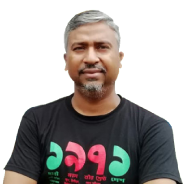




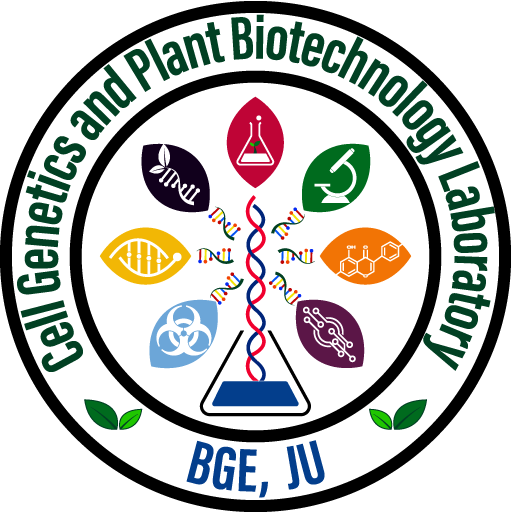
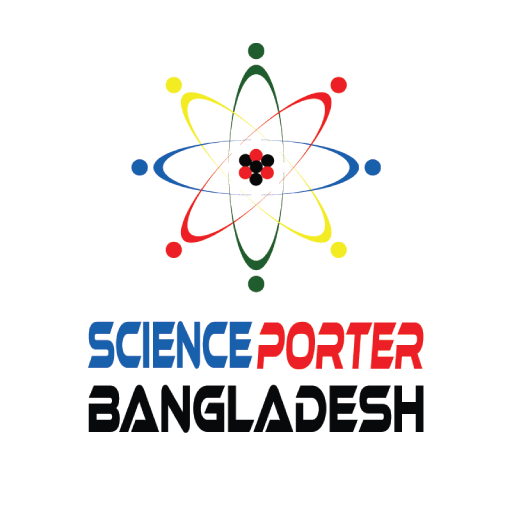

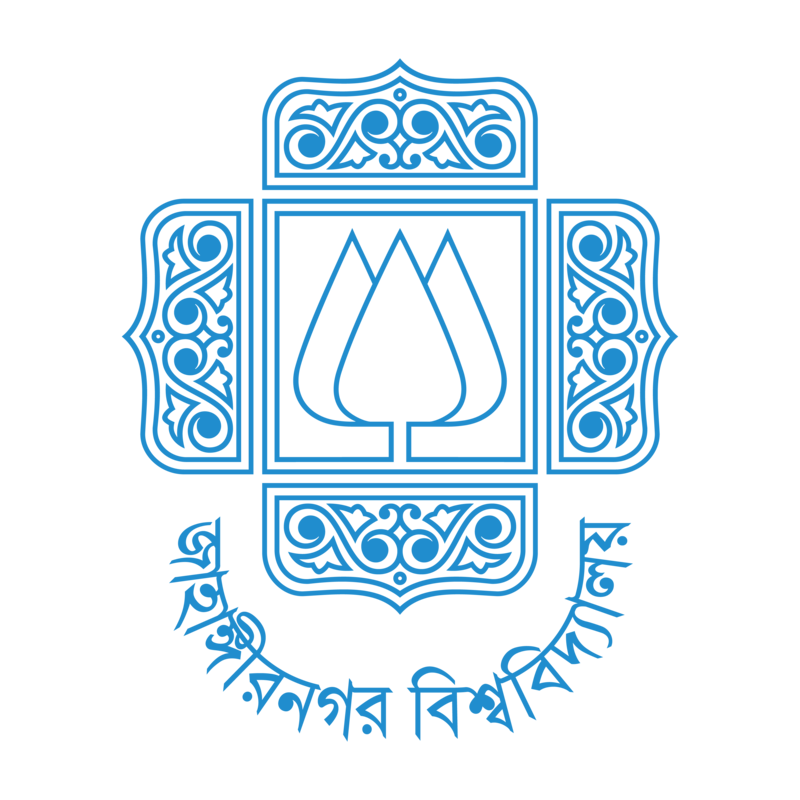
As a teaching assistant (TA) at JU under Professor Dr. Abdullah Mohammad Shohael, I supported the implementation of his innovative strategies to inspire students to become entrepreneurs and problem solvers. My responsibilities included organizing and managing tasks using platforms like Trello, facilitating presentations of student ideas and startup pitches.

In 2020, I conducted leadership training for students and community leaders in a workshop organized by Science Porter Bangladesh. Furthermore, I facilitated two additional leadership workshops from 2020 to 2021, all under the auspices of the same organization.







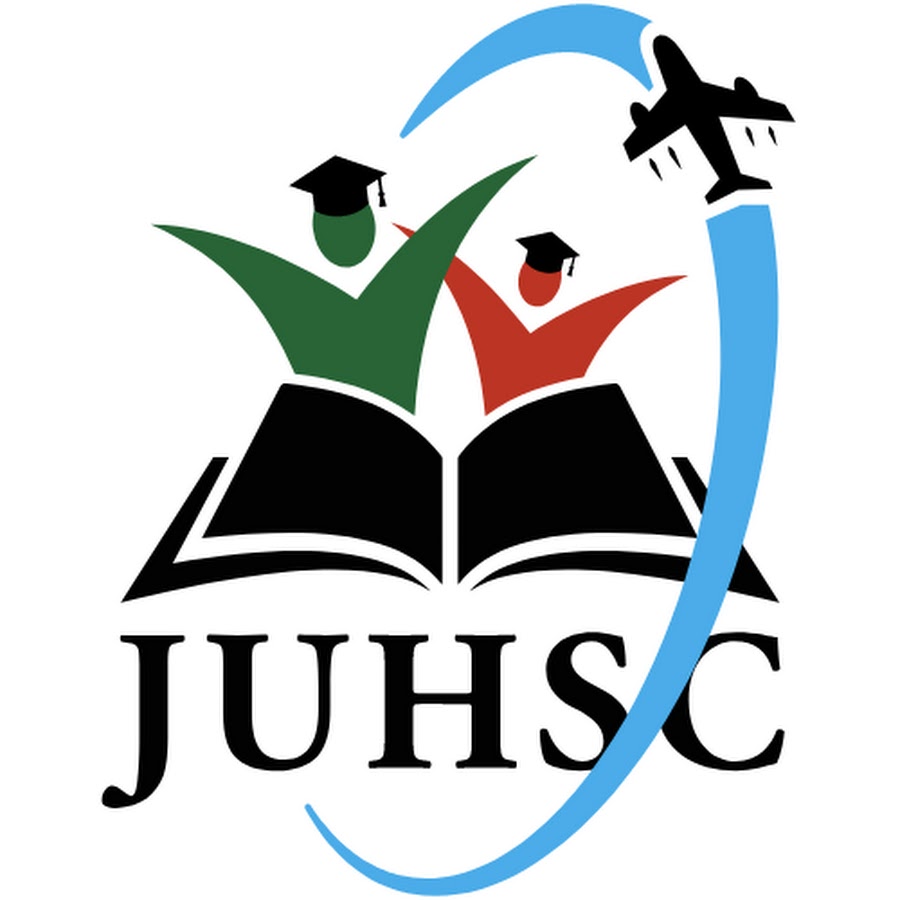

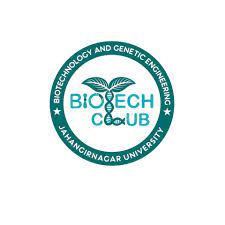

MSc in Biotechnology and Genetic Engineering.

BSc in Biotechnology and Genetic Engineering.
-
Python
-
PHP
-
C++
-
SQL
-
Bash
-
JavaScript
-
HTML/CSS
-
Bengali
-
English
-
Maithili
-
Hindi
-
Urdu
-
Sylheti
-
Assamese
-
Sanskrit
-
Odia
-
Chittagonian
-
Chakma
-
Gujarati
-
Punjabi
-
Marathi
-
Arabic
-
German
-
Genomics and Molecular Biology95%
-
High-Performance Computing95%
-
Bioinformatics Tools97%
-
Bioinformatics Algorithms90%
-
Statistics and Mathematics85%
-
Linux90%
-
Windows95%
-
VirtualBox95%
-
VMware95%
-
Apache90%
-
DNS90%
-
Slack100%
-
SQL75%
-
Docker70%
-
Nginx70%
-
Azure70%
-
Git75%
-
NumPy95%
-
Pandas95%
-
Matplotlib95%
-
TensorFlow75%
-
PyTorch75%
-
scikit-learn65%
-
Critical Thinking99%
-
Curiosity99%
-
Creativity97%
-
Technology Proficiency98%
-
Communication Skills95%
-
Presentation Skills97%
-
Strategic Thinking95%
-
Self-Motivation98%
-
Ethical Judgement92%
-
Financial Literacy90%
-
Storytelling90%
-
Project Management80%
-
Cross-Cultural Competence90%
-
Interdisciplinary Collaboration85%
-
Networking85%
-
Mentorship90%
-
Patience85%
-
Teamwork80%
-
Adaptability75%
-
Negotiation Skills75%
-
Emotional Intelligence65%
-
Customer Focus85%
-
Feedback Receptivity80%
-
Resilience75%
-
Crisis Management70%
-
Proficient in deciphering complex genetic data and unraveling biological mechanisms through genomics and molecular biology analysis.
-
Skilled in leveraging high-performance computing for efficient processing and analysis of large-scale genomic datasets.
-
Experienced in utilizing a diverse array of bioinformatics tools for genomic data analysis and interpretation.
-
Expertise in developing and implementing bioinformatics algorithms to tackle challenges in genomic data analysis and interpretation.
-
Proficient in applying statistical methods and mathematical models to analyze and interpret genomic and molecular biology data accurately.
-
Proficient in Linux and Windows environments, with expertise in VirtualBox and VMware.
-
Seasoned administrator of Apache and Nginx web servers, ensuring optimal performance and security.
-
Advanced DNS configuration knowledge for robust network setups.
-
Effective collaboration using Slack for streamlined communication within teams.
-
Skilled in SQL for precise and efficient database management.
-
Proficient in Docker for seamless containerization and deployment processes.
-
Experienced in Azure orchestration for cloud-based project management.
-
Expertise in Git version control for maintaining code integrity and enabling collaborative development.
-
Data science proficiency utilizing NumPy, Pandas, and Matplotlib for comprehensive analysis.
-
Deep learning competency with TensorFlow and PyTorch for cutting-edge AI applications.
-
Mastery in scikit-learn for enhancing predictive modeling capabilities.
-
Multilingual programming proficiency in Python, PHP, C++, SQL, Bash, and JavaScript.
Nothing Found
It seems we can’t find what you’re looking for. Perhaps searching can help.
The intersection of quantum mechanics and artificial intelligence has given rise to a new frontier—Quantum AI. In this blog post,…
Languages, the vibrant tapestry of human communication, are not static entities but living organisms that evolve over time. In this…
In the ever-evolving landscape of artificial intelligence (AI), profound questions about knowledge, belief, and reasoning come to the forefront. In…
Earthquakes, the powerful and unpredictable forces beneath our feet, have fascinated and terrified humanity for centuries. In our quest for…
- Address: Jahangirnagar University
- Email: sayemsarkar@aiedge.xyz
- Phone: +1 814 682 3025
- Consultancy: Available








